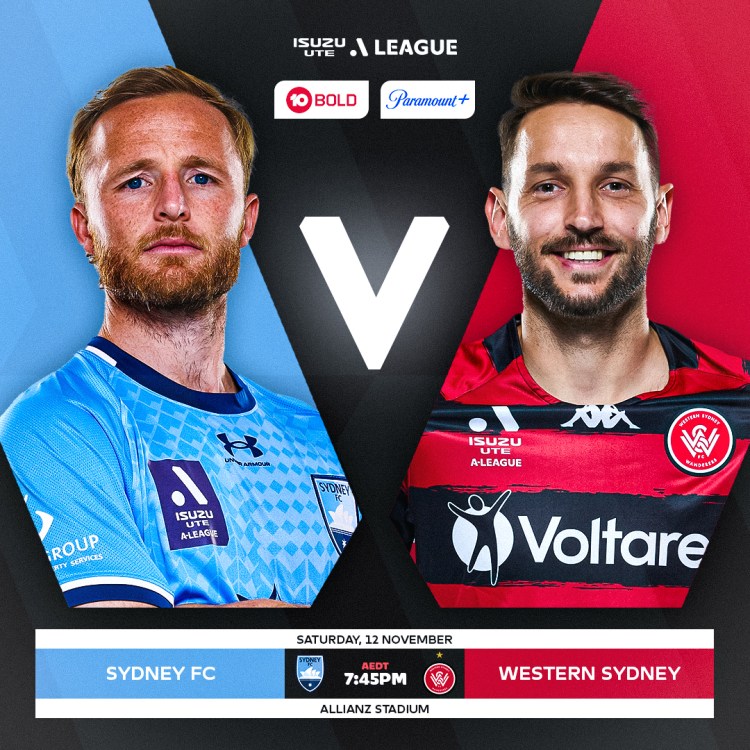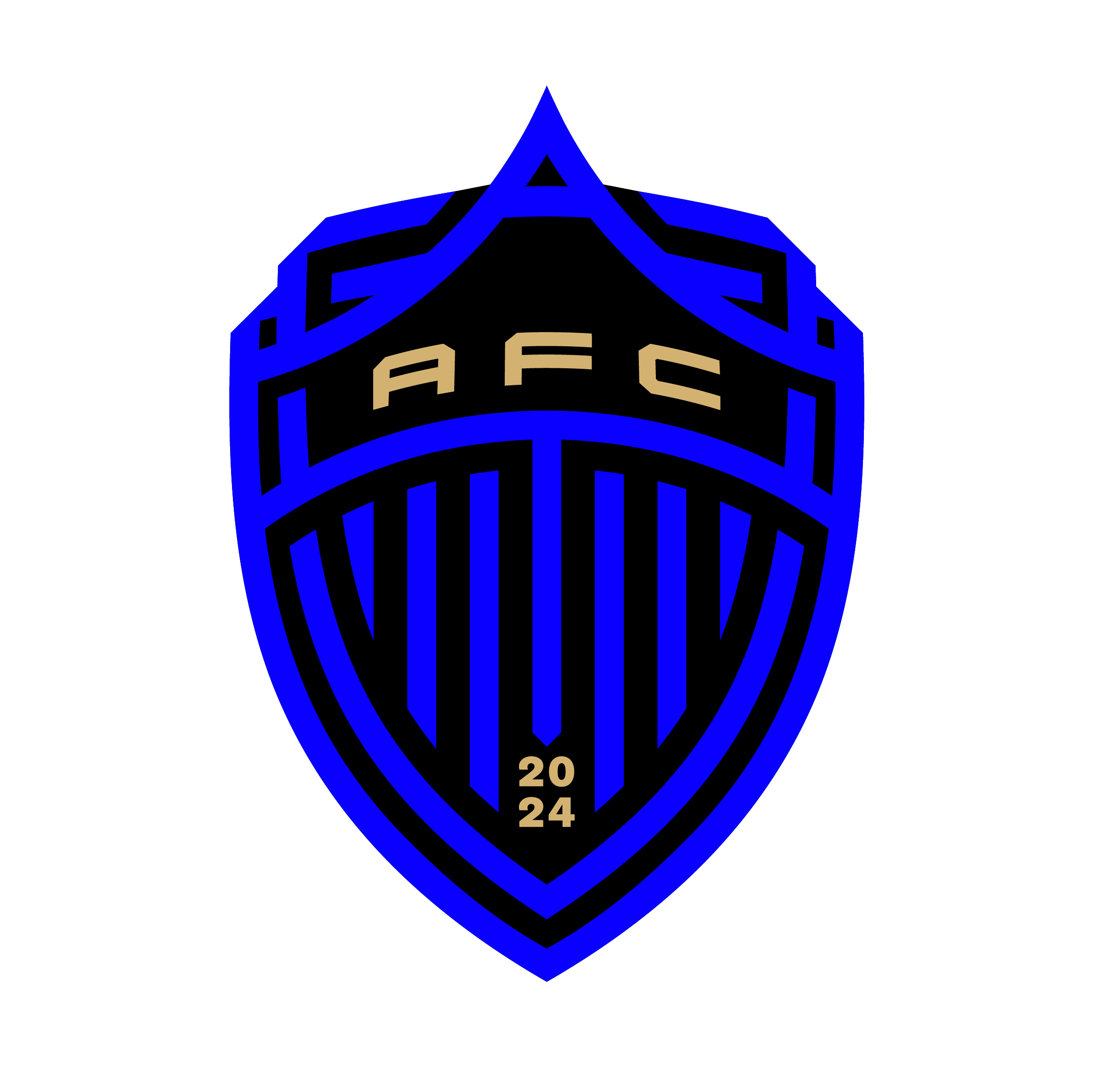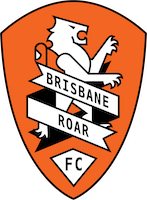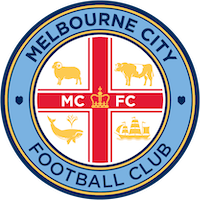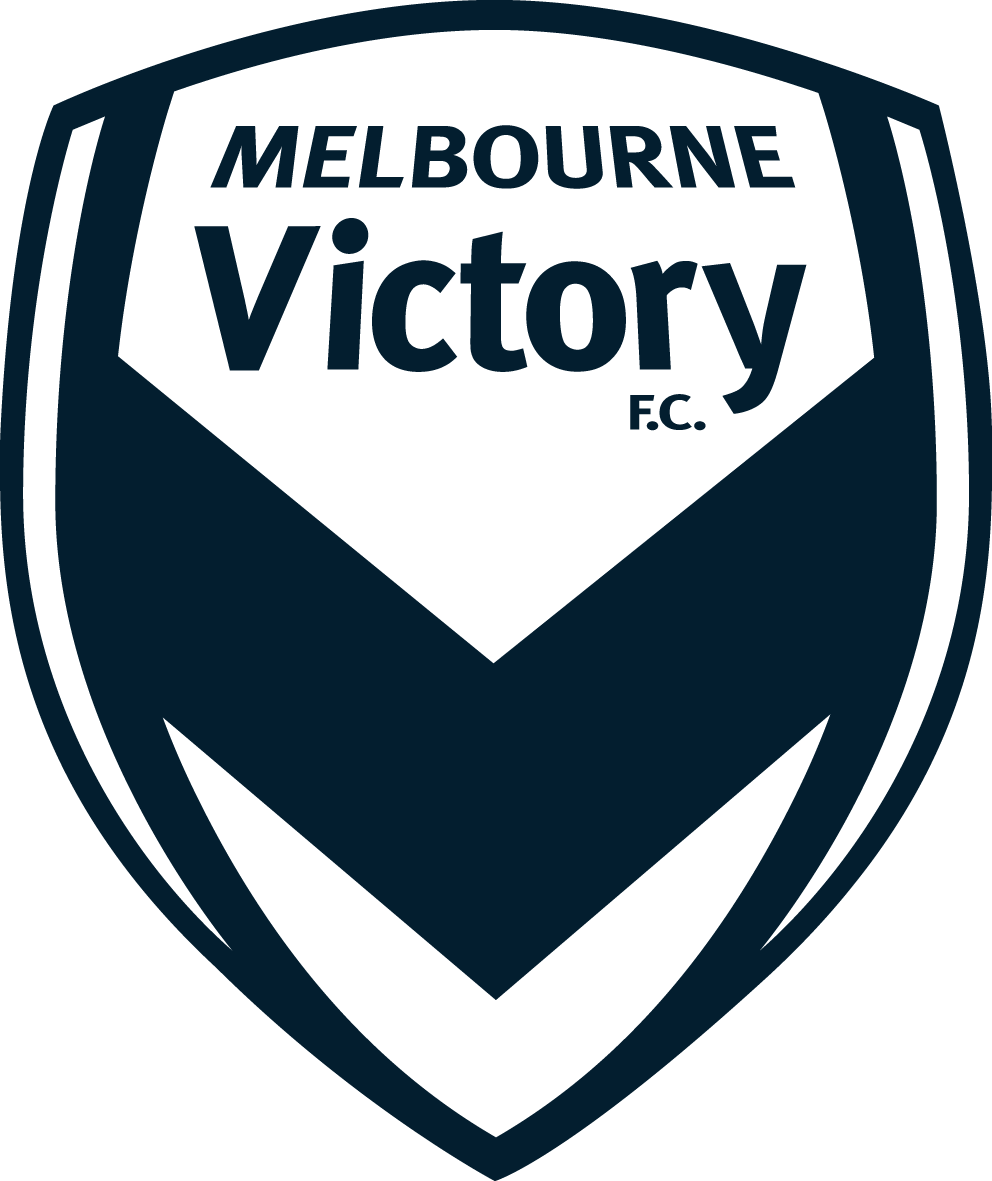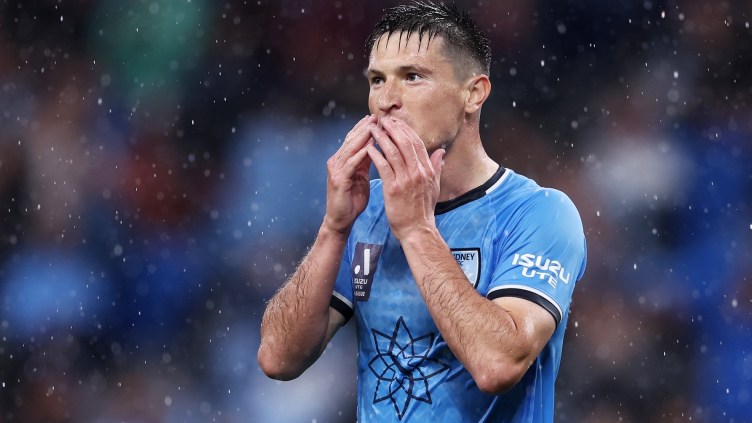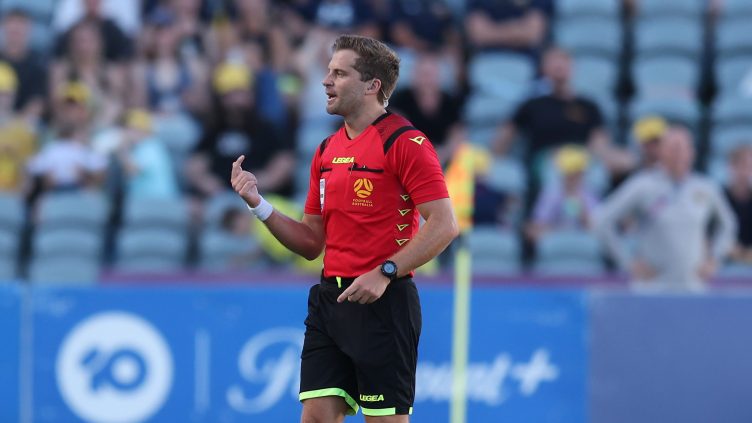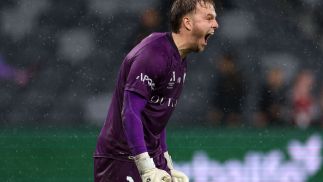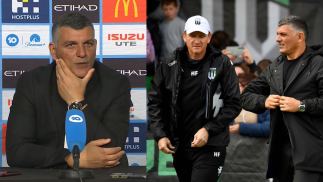Sydney FC’s English winger thought he was heading for the Premier League in May – instead he couldn’t be happier to be cutting a trail in the A-League, hears Tom Smithies
It seems appropriate that Joe Lolley is tucked away in a corner of Allianz Stadium, looking out across the gloriously sun-drenched pitch while himself sitting in a shaded area of the grandstand.
The light and shade of a football career is a recurring theme for a player happy to talk beyond cliches and banalities: interested to explore the essential flame of confidence in a creative player, to applaud the increasing willingness of athletes to speak out on issues of conscience, and even to offer the idea of the Isuzu UTE A-League as a competition where disillusioned players can “find the love of football again”.
It’s no ordinary interview, from a player prepared to question the way certain clubs try to chase short cuts to glory, and understand how external factors can complicate a game which in its simplest form gives him the most joy.
Most profiles of Lolley since he signed for Sydney FC have concentrated on the six month period when he sprang from the 10th tier of English football to the Championship, and that is a remarkable story.
But if you widen the focus, his career at 31 has risen and plunged like an alarming heart monitor – signing for Birmingham City’s academy but released at 16, playing glorified park football while he took a degree, surging into the Championship with Huddersfield but getting sold to Nottingham Forest a few weeks into Huddersfield’s first EPL season. Then, having been player of the year for Forest, and a couple of years later helping them get promotion into the Premier League but being told within weeks that he had no future at the club.
He could be bitter, maybe should be – instead he shrugs, says it wasn’t a huge surprise at Forest as he could see the tactical direction being taken where wingers weren’t part of the blueprint.
“I guess in many ways, it sort of reflects life at times,” he adds. “So you go through ups and downs and different periods. There’s been some great, great, unbelievable highs and plenty of lows to go with it. It’s just to test the character, the different challenges and things you go through to come out stronger. It’s been a good career, I’ve enjoyed every part of it, even though at times you feel like there’s some tough moments. And now I’m looking forward to this next chapter.”
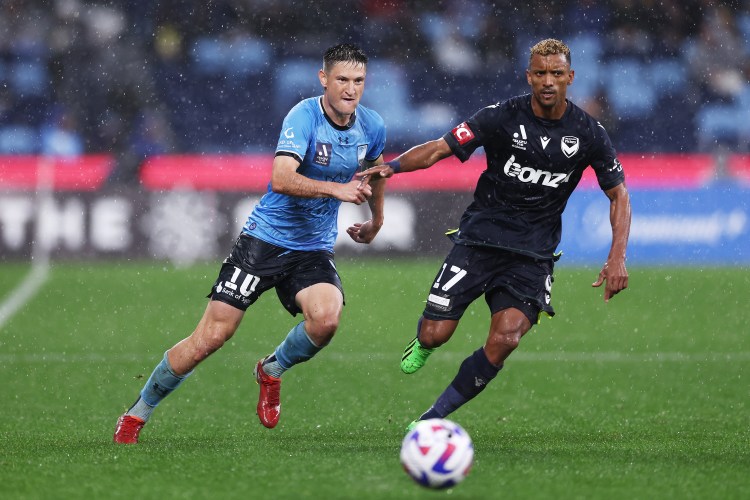
Maybe that’s because he seems to be revelling in a system at Sydney essentially designed to get him and Robert Mak on the ball as often as possible, with licence to run at defenders in a way that crowds love to see. And, it turns out, in a way Lolley loves to feel.
“It’s massive, confidence, even more so for an attacking player, where you need to express yourself,” he says. “Probably the best moments for any attacking player come off the back of something creative or something out of the blue, and those things usually require confidence.
“I feel really confident at the moment playing my football and I know that helps me. I’ve had difficult times in the past where you know you haven’t quite had things going for you, when you don’t feel mentally all there.
“Those are the toughest moments in football, and it can feel quite lonely at times. But also those moments build you up and allow you to come through stronger. You can reflect on how you got out of those moments and get back to a more positive outlook.”
Certainly it’s obvious, he says, when creative players aren’t bursting with belief. “You start picking safer options and doing things that you normally don’t think about… with all attacking players, especially myself, you do your best football from things that just happen naturally and just happen off the cuff. That’s what we’re paid to do as attackers as well, create and score goals and do things that are out of the ordinary.
“At times you’ve got to stick to the shape and the system that you’re put in but when you’re confident, you’re having fun and enjoying it, that’s when I’ve always played my best football.
“You want to get the ball, you want to dribble, you want to play one-twos, pass the ball, get it again. I think there’s no better feeling than just being involved constantly with the ball and enjoying the game.”
***
It seems like a remarkable coincidence that four players from his period at Forest are now in the A-League (himself, Zach Clough, Jason Cummings and Carl Jenkinson) – except Lolley wonders if it isn’t a coincidence at all. A few weeks ago, Clough told KEEPUP about the bewildering churn of players at the club as restless new owners sought instant progression to the promised land of the Premier League. It was, Clough argued, debilitating for a young player who had no idea of their future, and Lolley is absolutely on the same page.
“I played with countless players at Forest and every transfer window there was always massive turnovers,” he says. “I don’t think it’s necessarily helpful to be able to build relationships and be able to build a team. It doesn’t give the players much confidence about their futures, or allow them to feel settled and get into a rhythm.
“Zach had a pretty tough time at Forest and I saw a lot of players who went through similar situations. I was lucky enough that I got out quite quickly from the moment they said I could leave but it’s not the nicest way of doing things.
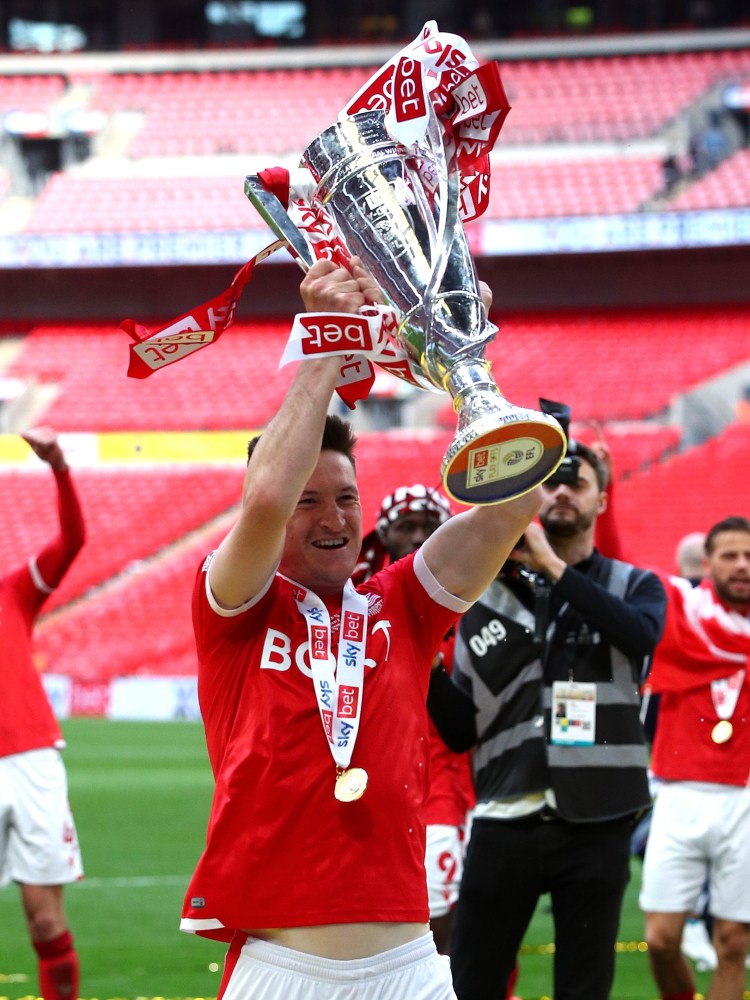
“I also don’t think on a football level that it’s massively conducive to positive outcomes. But, you know, if it works for them, then it’s their money, it’s their decisions, it’s their jobs on the line. They’re the ones that are paid to make those decisions.”
The funny thing is that Lolley thinks there might be something of a theme in the fact that he’ll encounter former teammates in a number of games this year.
“Well it shows how many players go through Forest,” he grins. “There might be something behind it, maybe in the way people are ousted and they want to find their love of football again.
“I’m sure it can mentally be very tough for people who have been put in that situation. So having spoken to all of them, everyone’s loving it, and they’re so happy to be here.”
****
Just days before the World Cup in Qatar, with the Socceroos at the forefront of players calling for human rights reform in the host nation, it seems a good time to explore Lolley’s own willingness to discuss social issues.
In previous interviews he has asked why the rich shouldn’t pay a bigger share to fund collective infrastructure such as health and education, and is now pleased to see athlete activism becoming a far more regular occurrence.
“I think the tide is turning a little, five or six years ago, it was very mechanical, very robotic in the way everyone would have to answer questions. Now it seems like people found their own voice and are allowed to express opinions.
“You’ve got such a powerful voice and you know kids and people are listening around the world. For people who are inspirational, especially at the top, top level, for them to speak out on important issues can help spread positive actions across the world.
“Especially leading up to the World Cup in a different culture. Obviously, they were awarded the World Cup controversially, I think it’s fair to say, and anything that football can do to improve the lives of people around the world, improve the lives of workers, that’s a positive force.
“There’s so many issues regarding (rights in Qatar) for workers and for LGBTQI people. It’s important that football comes together and gives a strong and positive voice for those who don’t have the voice to speak up.”
It’s almost time for Lolley to return to preparations for Saturday night’s derby, and he makes the point that he much prefers playing in such games to watching as a fan – “I think players probably enjoy derbies more because as a player, you’ve got a bit more control. You’ve got a chance to sort of put your name in lights. I was always too nervous as a fan.”
In current mood you’d hardly bet against Lolley being the name in lights, whether through scoring or beating players for fun to set chances up. Given the choice as to which is the better feeling, for a moment he looks stumped.
“Well it’s scoring… but that feeling of being on the pitch, being confident, feeling almost that invincibility and just enjoying it – there’s nothing better.”
